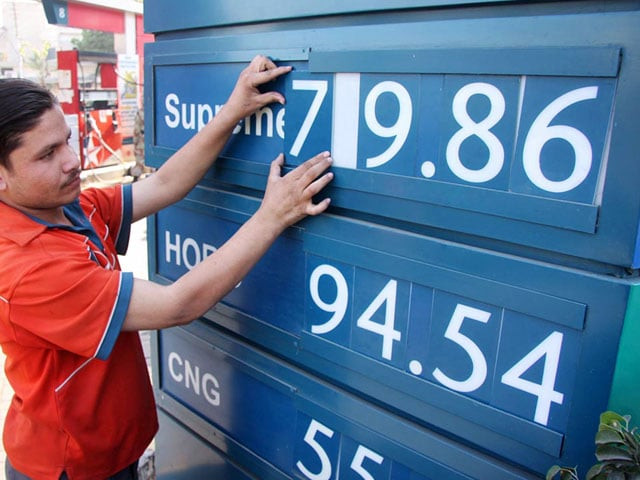Reversing the petrol price raise
Government has buckled under ‘political consensus’ against raising petrol prices in line with international ones.

The government had had to abandon the policy of subsidising oil prices in 2009 after accepting the IMF regime of bringing under control its budget deficit and extending the tax net. This prescription should have been adopted in Pakistan in any case for its own benefit, because widening deficits can cause high levels of inflation. Pakistan had offered to impose the reformed general sales tax (RGST) as a first step to reach the stage of registration of the economy, prior to improving direct taxation. The RGST, too, was used as a political tool and rejected by the opposition.
The combined opposition has more votes in the National Assembly than the government. It can either get the prime minister to prove a majority through a no-confidence vote or make the government adopt policies that will ensure its demise through such ‘natural means’ as international isolation — which will result in stoppage of foreign assistance and the inability of the state to buy energy-related imports. The opposition has taken the latter course at the risk of appearing to be ignorant of basic economics. It has chosen to ignore that Pakistan became ungovernable, in large part, by the Musharraf regime’s decision to accumulate a mountain of circular debt by subsidising the 2007 hike in the international oil price.
Large sections of the media are also at fault in this. While it was all right to expose the government’s corruption scandals, it was not proper to turn the face away from economic principles that guide the world today. The clergy, which has combined to hit the roads in protest against any modification in the blasphemy law, is equally opposed to the latest price adjustment by the Oil and Gas Regulatory Authority.
The ulema do not believe in any economic system dictated in their eyes by the West, in general, and America in particular. They think Pakistan remains tainted by the curse of bank interest at home and the interest it pays on loans contracted through west-dominated international organisations. Their recipe is a bloody revolution that will squeeze the capitalist to fill the coffers of the state. But the political parties know better. The PML-N knows that it is taking the populist path which will harm Pakistan. It must also know that coming to power after the PPP, it will not be able to handle the inflationary fallout from the present subsidy, just as the PPP was not able to tackle the circular debt of Musharraf. Unfortunately, the PML-N has played ducks and drakes with its own finances in Punjab by dishing out a Rs20 billion subsidy through its infamous ‘sasti roti’ scheme. The professional economists are all speaking out against the latest splurge, but not the economists aligned with the political parties, which is a pity.
Recovery, after a period of mismanagement or after crises caused by upheavals in the international market, requires tough decisions. If these decisions are not taken responsibly and if fiscal discipline is not adopted even at the risk of popular outrage, no one in the world would be willing to bail Pakistan out — not because of any violation of doctrine, but because everyone knows that after a subsidy, no amount of assistance will help. In France and the United Kingdom, parliaments have taken these tough and ‘unpopular’ decisions across the political divide in the face of public anger.
Our politicians have turned ‘economic lemmings’, running pell-mell, in the direction of an abyss beyond which al Qaeda and its madrassa minions are waiting for the state to be handed over to them on a platter. Pakistan needs external sympathy and help at this stage, not rupee-destroying subsidy. Furthermore, economic decisions should be made on economic principles, not on the bedrock of populism.
Published in The Express Tribune, January 8th, 2011.













COMMENTS
Comments are moderated and generally will be posted if they are on-topic and not abusive.
For more information, please see our Comments FAQ